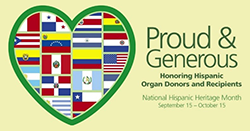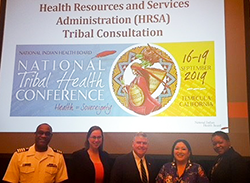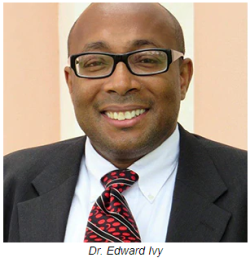
HRSA at the United Nations

Admiral Brett Giroir, M.D., HHS Assistant Secretary for Health, and HRSA Acting Administrator Tom Engels appeared at the United Nations on Monday with HRSA staff in support of HHS Secretary Alex Azar's call for "focusing the international discourse around healthcare ..."
|
2018 National Survey of Children’s Health Data to be Released October 7

HRSA will release 2018 data from the National Survey of Children’s Health (NSCH) on October 7. The NSCH provides the latest national and state-level data on the health and health care needs of children as well as information about their families and communities.
Survey topics include children’s:
The NSCH is funded and directed by HRSA’s Maternal and Child Health Bureau and conducted by the U.S. Census Bureau, which oversees sampling, survey administration, and production of a final data set for public use.
|
National Health Service Corps Students to Service Loan Repayment Program Open to Final-Year Medical, Dental Students

The 2020 National Health Service Corps (NHSC) Students to Service (S2S) Loan Repayment Program (LRP) application cycle is open. Medical and dental students in their final year of school can receive awards of up to $120,000 in exchange for a three-year commitment providing primary care services at NHSC-approved sites in high-need areas. Review the 2020 Application and Program Guidance (PDF - 1.2 MB) for more information on how to apply. The NHSC S2S LRP application cycle closes on October 31, 2019 at 7:30 p.m. EDT.
|
National Hispanic Heritage Month
September 15 – October 15

During National Hispanic Heritage Month, celebrated September 15 to October 15 every year, HRSA recognizes Latino and Hispanic Americans who have given the gift of life through organ, eye, and tissue donation, and those awaiting a life-saving organ transplant.
Right now, more than 113,000 people are waiting for an organ transplant and more than 22,000 of them are Latino and Hispanic Americans. People of all races and ethnicities can help. Share the gift of life during National Hispanic Heritage Month by joining the 145 million people in the U.S. who have already signed up to be organ, eye, and tissue donors. Learn more and spread the word about the need for donors with the resources below:
|
HRSA Meets with Tribal Leaders

Led by Acting Administrator Tom Engels, a delegation from HRSA met with tribal leaders at the National Tribal Health Conference in Temecula, California last month.
Established in 1972, the National Indian Health Board is the non-profit representative of 566 tribal governments in 12 regions nationwide, charged with ensuring that the federal government upholds its "trust responsibilities" to provide health care to the Tribes. The board plays a central role in focusing national attention on American Indian and Alaska Native health care and public health needs.
|
Improving Access to Care in Sickle Cell Disease

HHS Blog Post by HRSA's Dr. Edward Ivy, a Medical Officer in the Maternal and Child Health Bureau.
I have lived with sickle cell disease for 48 years. The toll it takes goes far beyond pain – it has impacted me emotionally, economically, and psychosocially. I missed childhood activities because I was too sick or tired. I missed school days and worked harder to catch up on missed assignments. I learned to live with sickle cell disease, but it still impacted my ambitions. I wanted to join the Air Force and serve my country, but those dreams were dashed when a recruiter in high school told me I could not join. So, instead, I committed myself to finding a cure and helping others suffering from it.
|































No hay comentarios:
Publicar un comentario